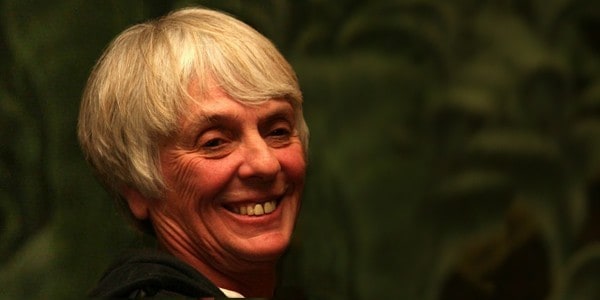
About 15 or so years ago, I attended a Leadership Academy for the Society of American Foresters for which Lynn Jungwirth was the keynote speaker on leadership. She was amazing and inspiring. I was thinking about the SAF meeting and thought I’d see if I could find a copy of her speech. While I couldn’t, I did find this interview from 2013, when she became a board member of Sustainable Northwest and so here’s a link. She is one of the founders of the community forestry movement in the US west, so this is relevant to our ongoing community forestry discussion.
SNW: What are some of your biggest accomplishments in the past year, policy or otherwise?
Lynn: Too many to list! We’ve made significant inroads in the state of California on biomass policy, especially as it relates to forest health. We’ve done a lot of community level work, as well as work with state partners. We have seriously affected the national cohesive wildland fire strategy to build capacity at the local level, so communities can adapt to fire and help the land around them adapt as well. On a local level, we have launched a prescribed fire strategy in Trinity County and trained local crews in understanding and conducting prescribed burns. This has been a great year for providing jobs to get young people experience in natural resources management.
SNW: What are your goals for the next three to five years?
Lynn: We are going to work on expanding the tools for community forestry in more communities throughout the West, especially by developing and improving the “hub and spoke” network. We will try to get the Forest Service involved on the local level and have them designate Trinity Forest as a community forest. We also receive significant Forest Service contracts each year and need to meet land planning goals as well.
SNW: What barriers are preventing you from achieving your goals?
Lynn: The biggest barrier is that there is no legal framework for local groups to work with federal land managers. We are doing “out of the box” work and therefore have to bend the system to do things differently. We must find another way because there is no standard policy to support our work. Many of the rules we deal with were written for a former institution, and there is no legal process or framework to do things differently. The Forest Service National Partnership Office has done a lot, but now we need the land management, procurement, and acquisition side to get involved as well for planning decisions and financial arrangements. Changes in tools and policies need to be prioritized.
SNW: If you could have 1 minute to address the President or Congress, what policies would you pitch?
Lynn: (Three things):
1. Congress: please permanently reauthorize Stewardship Contracting.
2. Mr. President: We are ready for a rural agenda (AGO was ok?), but we need the people and land relationships figured out better. Livelihoods based on recreation don?t create the kind of relationship that we should have with natural resources. The practice of ?use and exploit? doesn?t work for both sides. We cannot continue to demean rural; rural lands are more than just vacation destinations. So far we either exploit it or have service jobs.
3. Some of the brightest, most courageous and energetic young people that want to live with and treat the land properly, have homes and families in our community. We must give them the tools to provide effective land management.
Dang, that woman gives me chills every time!
Don’t know anything about the lady but, on the surface, I don’t have any problem with her points 1-3
I would love an opportunity to work with the Forest Service or BLM on the community forest level.
(If we could actually accomplish something)
But dealing and talking with the Forest Service and BLM has become a black hole.
(How did all these nonsensical “environmental” laws get in place anyways?)
I like her attitude and ideas, maybe someday.